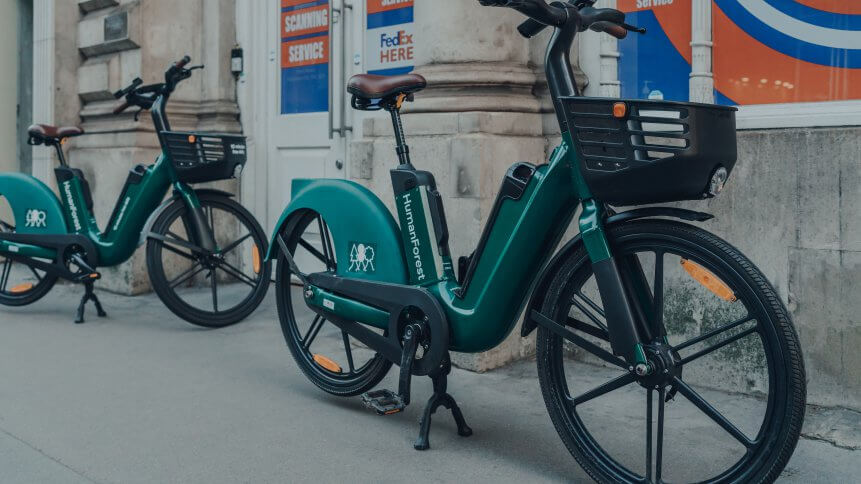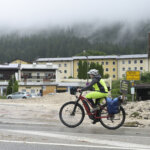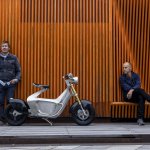Deliveroo and HumanForest team to boost sustainable delivery

- Deliveroo data revealed that by using the bikes, the effectiveness of its sustainable mobility strategy resulted in a reduction of 6,400 tons of CO2
- According to Statista, the growing worldwide trend of food delivery should reach US$182,327 million in 2024
- Electric vehicles could be a viable alternative to increase the sustainability of e-grocery home deliveries — even if they involve additional costs for logistics service providers
Deliveroo has recently partnered with HumanForest, a micro-mobility startup. The partnership aims to increase sustainable food delivery across London by providing an environmentally-friendly alternative to current delivery models.
The new initiative will allow delivery riders to purchase bundles of minutes through the platform, which can then be used to power their e-bikes while delivering food or even for leisure.
Deliveroo aiming for affordable and accessible e-bikes
“At Deliveroo, we are determined to do our bit to help protect the environment,” said Andy Batty, director of operations, UK & Ireland, Deliveroo. “We are pleased to partner with HumanForest to not only boost sustainable delivery in central London, but to allow riders to take advantage of more affordable, clean and efficient modes of transport across the capital.”
Deliveroo’s data revealed that by using the bikes, the effectiveness of its sustainable mobility strategy resulted in a reduction of 6,400 tons of CO2. According to Contribution to the Sustainability Challenges of the Food-Delivery Sector: Finding from the Deliveroo Italy Case Study, a reduction of 700 tons in Italy, was equal to that absorbed by 20 thousand plants.
Deliveroo committed to the fight against plastic consumption
Deliveroo is committed to the fight against plastic consumption. The company introduced an option in its app that allows consumers to order without cutlery, encouraging them to bring their own instead.
The company hopes that this will help reduce the cutlery into landfills each year. According to the company, its #BeatPlasticPollution initiative has led to a drastic contraction in demand for plastic cutlery, 85.6% less in the first months of 2020.
Aiming to make London a greener, cleaner, and more fun
HumanForest also aims to make city transport greener, cleaner, and more fun. To achieve this mission, the company developed a unique e-bike sharing solution in the form of a fleet of shared e-mopeds launched in London recently.
The fleet of 800 zero-emission, fully electric bikes in London was launched in September 2021 alongside community groups, customers, local government, and partners at major transportation hubs for use by locals and tourists alike.
Food delivery system to grow exponentially
Food delivery is one of the most visible manifestations of digitalization, and consumption patterns have grown by a double-digit percentage for years. The reasons for this success go beyond just convenience or speed: Internet-based business models have also made it easier to deliver fresh produce and other quality products while ensuring they stay cool and fresh.
According to Statista, the growing worldwide trend of this sector is at US$136,431 million in 2020, of which US$70,741 million is attributable to the platform-to-consumer delivery segment; a value that should reach US$182,327 million in 2024.
A study titled Challenges and perspectives for the use of electric vehicles for last-mile logistics of grocery e-commerce has shown that electric vehicles could be a viable alternative to increase the sustainability of e-grocery home delivery, even if they involve additional costs for logistics service providers.










